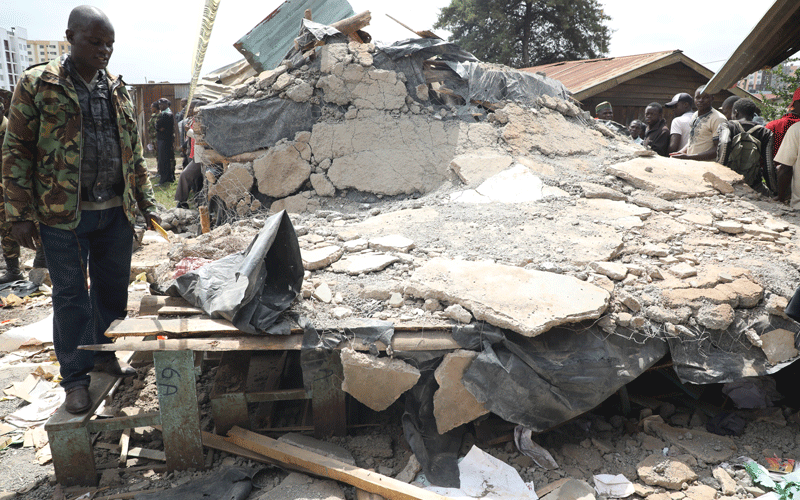Schools must take safety of learners seriously
By Kennedy Buhere, September 30, 2019The Ministry of Education has closed down a number of primary schools because they don’t meet the acceptable minimum safety standards.
Learners in affected schools have been directed to enroll in the neighbouring public schools.
A safe learning environment is essential because without it, students cannot focus on learning.
The Safety Standards Manual for Schools in Kenya, 2008, notes that apart from personal threats, insecurity for children can emanate from inappropriate school facilities and infrastructure, including poorly constructed classrooms and playing grounds, insufficient and broken-down toilet facilities, gender insensitive location of toilet and bathroom facilities, and inadequate and inappropriate desks and other furniture.
The crackdown on schools which don’t meet safety standards is meant to not only to protect the lives of the learners, but also ensure that they enroll in a safe, secure and caring environment that facilitates and enhances quality teaching and learning.
The ministry has designed policies, regulations, rules and guidelines that ensure that the organisation of school programmes, and an environment supports a teaching and learning regime stimulates knowledge, skills, attitudes and life skills in learners.
By and large, the public primary school system is good enough. It enjoys the most qualified and experienced teachers. The government has provided textbooks, an essential tool of learning.
In the last six years, the government has introduced two transformative programmes: an early grade literacy and numeracy programme which lays the basic skills children need for effective learning.
Learning in public schools is reasonably paced. There is a better balance between rigour and joy in learning.
The comparatively large playgrounds and relatively shorter learning time, creates room for children in public schools to play and indulge in creativity and in the development of soft or life skills.
In the public schools, pupils get ample opportunity to interact with a curriculum that is appropriately sequenced—through official class hours, on the playground, during break and lunch times, and in co-curricular activities—the learners actually develop the foundational knowledge, skills and attitudes appropriate for primary school education—reading, writing, deciphering and elementary knowledge in sciences, and social studies.
Most of the things that ultimately matter to education are not reducible to grades, or ticks in an exercise book: Communication, problem solving and teamwork. Employers often value these skills.
The public school system, which some parents shun, have the wherewithal to develop all these in learners.
We have some of the finest private schools in this country. They are doing a lot to complement government efforts to ensure access to inclusive quality education to children.
They have taken the safety of students in their vision of education. They also focus on curriculum and instruction, properly sequenced in line with the vision underlying Kenya Institute of Curriculum Development (KICD) in developing the syllabus.
But not all private schools meet these standards; hence the crackdown on those who don’t. Unfortunately, some parents are more captivated by grades, and by labels. They don’t bother about the safety of their children.
Safety of learners comes first before curriculum instruction. Quality curriculum instruction is nothing to a child who daily faces danger of being hurt in school.
— The writer is the communications officer, Education ministry
—kbuhere@education.go.ke
More Articles

